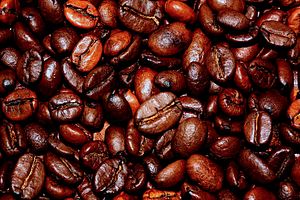Coffee is one of the most beloved beverages in the world, especially in leading nations like the United States, where 61 percent of adults drink coffee everyday. But what about isolated nations like North Korea?
A new report on a Pyongyang coffee shop by the Choson Exchange, a Singapore-based NGO that trains North Koreans in economics and business, gives a bit of a hint. Choson Exchange explains that the cafe in Pyongyang, called “Gold Cup Coffeeshop,” is designed to appeal to visitors. However, the report also notes that Pyongyang doesn’t yet have a true stand-alone coffee shop, as there’s not yet enough demand to keep such a business afloat. Accordingly, the Gold Cup Coffeeshop is attached to a restaurant, like most cafes in Pyongyang. Even the Gold Cup restaurant itself is part of a larger company.
Meanwhile, there was a report in March showing that since 2000, North Korea has imported anywhere from 3,000 to 30,000 bags of coffee per year. The report, by the International Coffee Organization (ICO) in collaboration with the United Nations, notes that imports have vacillated wildly from year to year, but resulted in an average of 19,000 bags per annum over the entire period. At this rate, the ICO notes, North Koreans consume around 50 grams of coffee (around seven cups) per person every year.
This is considerably higher than the amount of coffee North Koreans were consuming in the 1990s, but remains extremely low. The report added that a few Western-style coffee shops had begun to open in Pyongyang (such as the Gold Cup Coffeeshop described by the Choson Exchange), but coffee remains largely a luxury good, as the cost is prohibitive for many North Koreans. As a result, the market remains limited.
The Washington D.C.-based Radio Free Asia (RFA) reported in April last year that a coffee shop offering hand drip coffee — the first of its kind — opened right next to the Pyongyang Hotel. The average price of its coffee was $3 a cup.
At the time, Starbucks told RFA it has no plans to open any branches in North Korea. This stands in stark contrast to South Korea where Starbucks operates around 284 stores in Seoul alone, giving Seoul more Starbucks than any other city in the world.

































